Concrete driveway
MariposaTraicionera
14 years ago
Featured Answer
Comments (12)
sierraeast
14 years agoventupete
14 years agoRelated Professionals
Martha Lake Kitchen & Bathroom Remodelers · Toledo Kitchen & Bathroom Remodelers · Middlesex Kitchen & Bathroom Remodelers · Deer Park General Contractors · DeRidder General Contractors · Millville General Contractors · Rolling Hills Estates General Contractors · Summit General Contractors · Columbus Painters · Lawrenceville Painters · Cape Coral Painters · Grayslake Painters · Neenah Painters · Vermilion Painters · Warr Acres Painterssierraeast
14 years agoMariposaTraicionera
14 years agoMariposaTraicionera
14 years agosierraeast
14 years agoMariposaTraicionera
14 years agobingopin
14 years agoMariposaTraicionera
14 years agomike_kaiser_gw
14 years agobillandterry
14 years ago
Related Stories
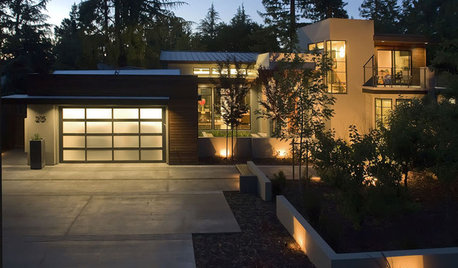
REMODELING GUIDESConcrete Driveways: Poring Over the Pros and Cons
Concrete adds smooth polish to driveways and a sleek look to home exteriors, but here are the points to ponder before you re-surface
Full Story
MATERIALSPrecast Concrete Pavers Make a Versatile Surface in the Garden
You can use concrete pavers in a variety of shapes and colors for your patio, walkway, driveway and more
Full Story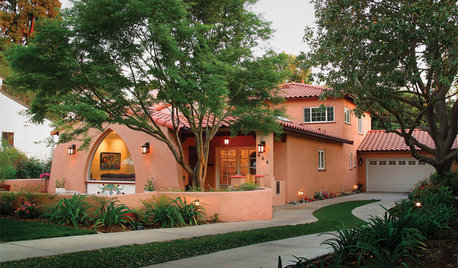
GARDENING AND LANDSCAPINGRenovation Detail: The Ribbon Driveway
Grass paired with concrete for the driveway is more than just pleasing to the eye — it's good for the environment and your home
Full Story
PATIOSLandscape Paving 101: Cast-in-Place Concrete
A construction standard, cast-in-place concrete can be used for a wide variety of project types
Full Story
LANDSCAPE DESIGNOutdoor Style: Creative Ways With Classic Concrete
Have you cast concrete aside as being too dull or crack-prone? Learn about new design options along with the basics of using it outside
Full Story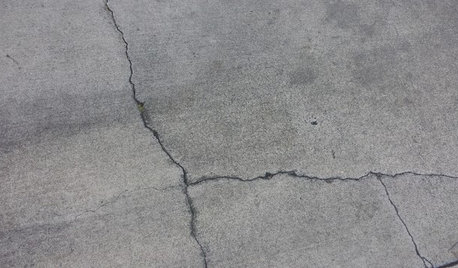
CONCRETEWhy Concrete Wants to Crack
We look at the reasons concrete has a tendency to crack — and what you can do to help control it
Full Story
GREAT HOME PROJECTSHow to Tear Down That Concrete Patio
Clear the path for plantings or a more modern patio design by demolishing all or part of the concrete in your yard
Full Story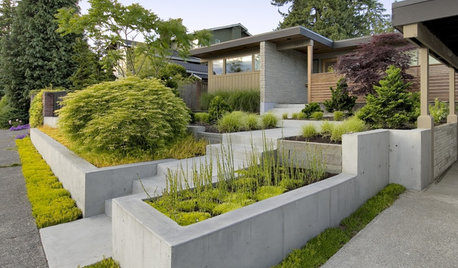
LANDSCAPE DESIGNGarden Walls: Pour On the Style With Concrete
There's no end to what you — make that your contractor — can create using this strong and low-maintenance material
Full Story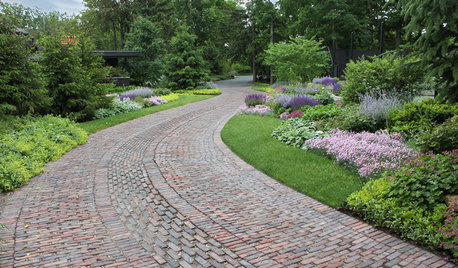
LANDSCAPE DESIGN6 Driveway Looks Take Landscapes Along for the Ride
See how to design a front yard that makes your driveway its own destination
Full Story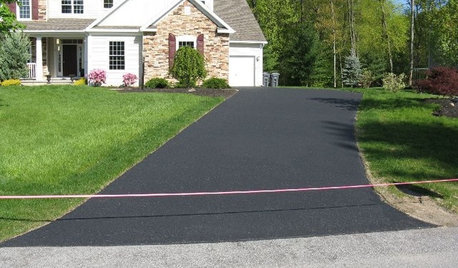
CURB APPEALHow to Reseal Your Asphalt Driveway
Protect your driveway and keep it looking great by applying new sealer every couple of years. Get the details here
Full StoryMore Discussions






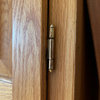
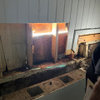
MongoCT